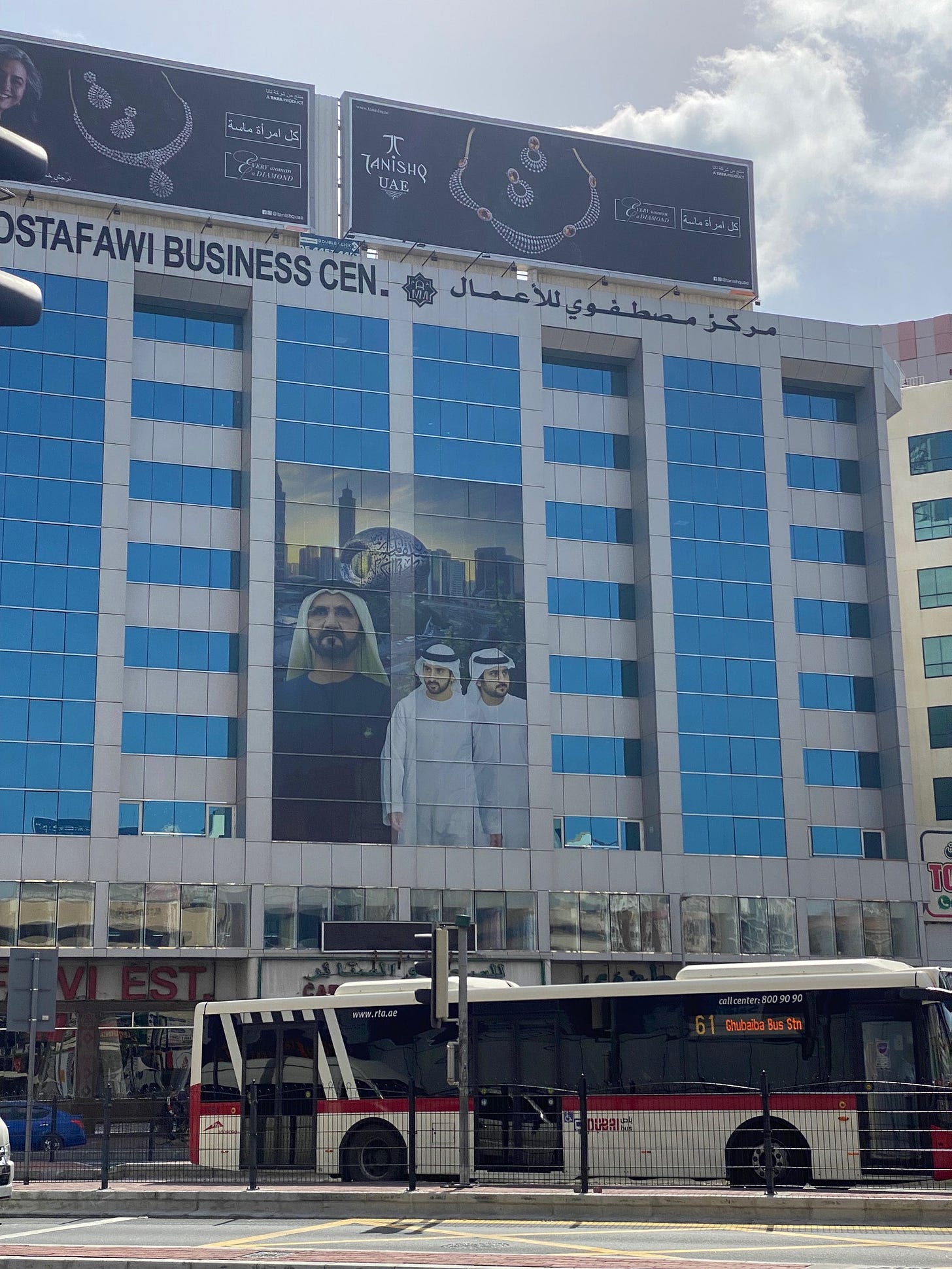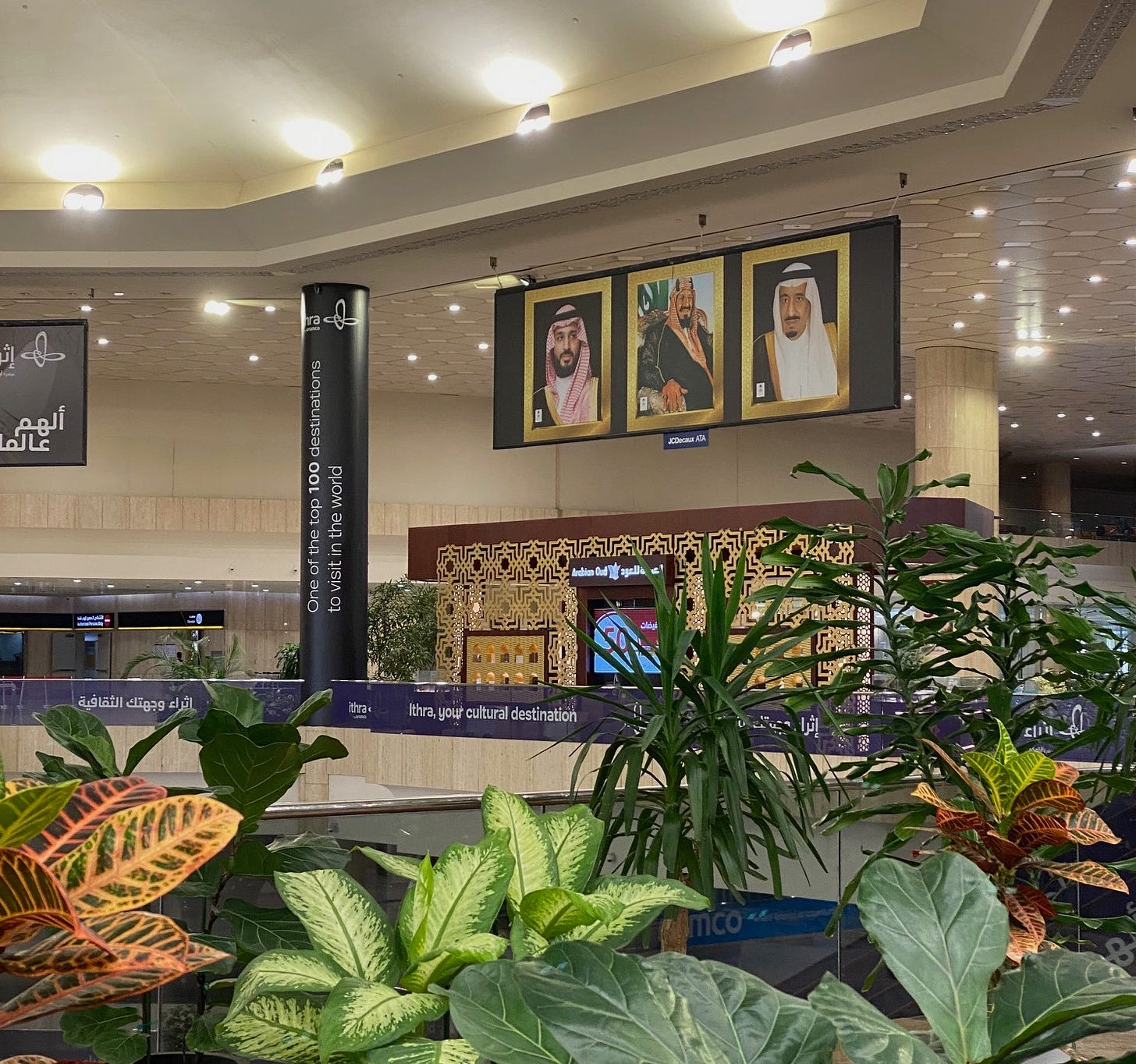Over the past few months, I have both lived and traveled in what could be accurately described as “non-democracies,” or, in the best of cases, “democracies in crisis” or “fragile democracies.” While the extent of their lack of democracy (broadly speaking) varies, as well as how pronounced it is to the casual expat1 or tourist and how condemned it is on the world stage, nevertheless, the photos below capture just a small part of the way power is exercised and displayed within these systems of governance, one that is neither universal nor exclusive to non-democratic regimes2 but one that is instantly recognizable to most observers.3
Something to note is that many, if not most, of these photos were taken in airports. Airports are important points of entry and exit and the first impression foreign visitors receive of a given country. In many ways, then, the international airport sets the tone of what’s to be expected beyond the liminal area of the state border.
Finally, “fragile/fraught” democracies or “non-democracies” (and dictatorships more broadly) are extremely gendered, “masculine-coded,” if you will. I can count on one hand the number of women who achieved fame, or rather infamy, in this department. More often than not, any personality cult centered on a woman is irrevocably linked to the one centered on her husband.
Former King Bhumibol Adulyadej, Don Mueang International Airport, Bangkok, Thailand.
Former King Bhumibol Adulyadej, Phuket City, Phuket, Thailand.
Sheikh Mohammed bin Rashid Al Maktoum and sons, Burjuman, Dubai, United Arab Emirates.
Prime Minister Narendra Modi, Indira Gandhi International Airport, New Delhi, India.
The House of Saud, King Fahd International Airport, Dammam, Saudi Arabia.
Former president Islam Karimov, Samarkand, Uzbekistan.
Karimov feat. Russian President4 Vladimir Putin (in magnet form), Samarkand, Uzbekistan.
President Recep Tayyip Erdoğan, Istanbul Airport, Istanbul, Turkey/Türkiye.
In a literal sense, as in “someone who moves temporarily to a place for work with no intention to stay permanently,” not in the “Westerner moves to low COL country because home country is too expensive yet wants to continue living home country lifestyle” sense. Also, in the Gulf at least, every foreigner is an expat, from the migrant workers to the high-earning executives.
There are countless examples of non-personalist authoritarian regimes, including but not limited to most, if not all, military junta-based dictatorships, and even some communist regimes (Laos, for example, didn’t strike me as particularly personalist), though perhaps the latter could be conceived as personalist if one considers “the Party” to be a human-like entity (like the US Supreme Court considers corporations). Monarchies, on the other hand, are all personalist by nature, for obvious reasons.
Democracies and democratic politics can also boast very personalist elements, e.g. Argentina (this sort of personalist politics is present across the political spectrum, not just among Peronists, who are its most well-known practitioners).
Dictator, warmonger, murderer, I know, but I’m trying to stick to official titles.










